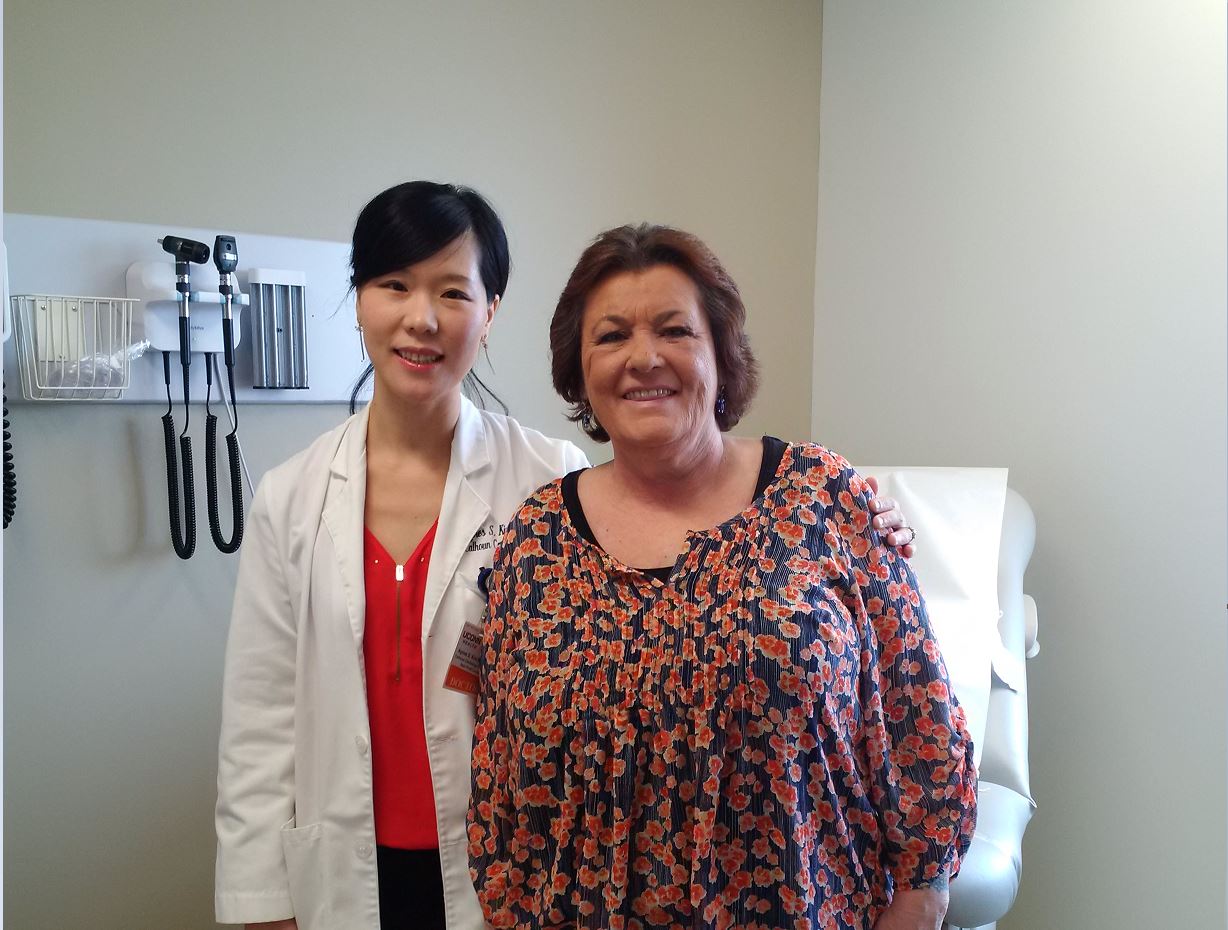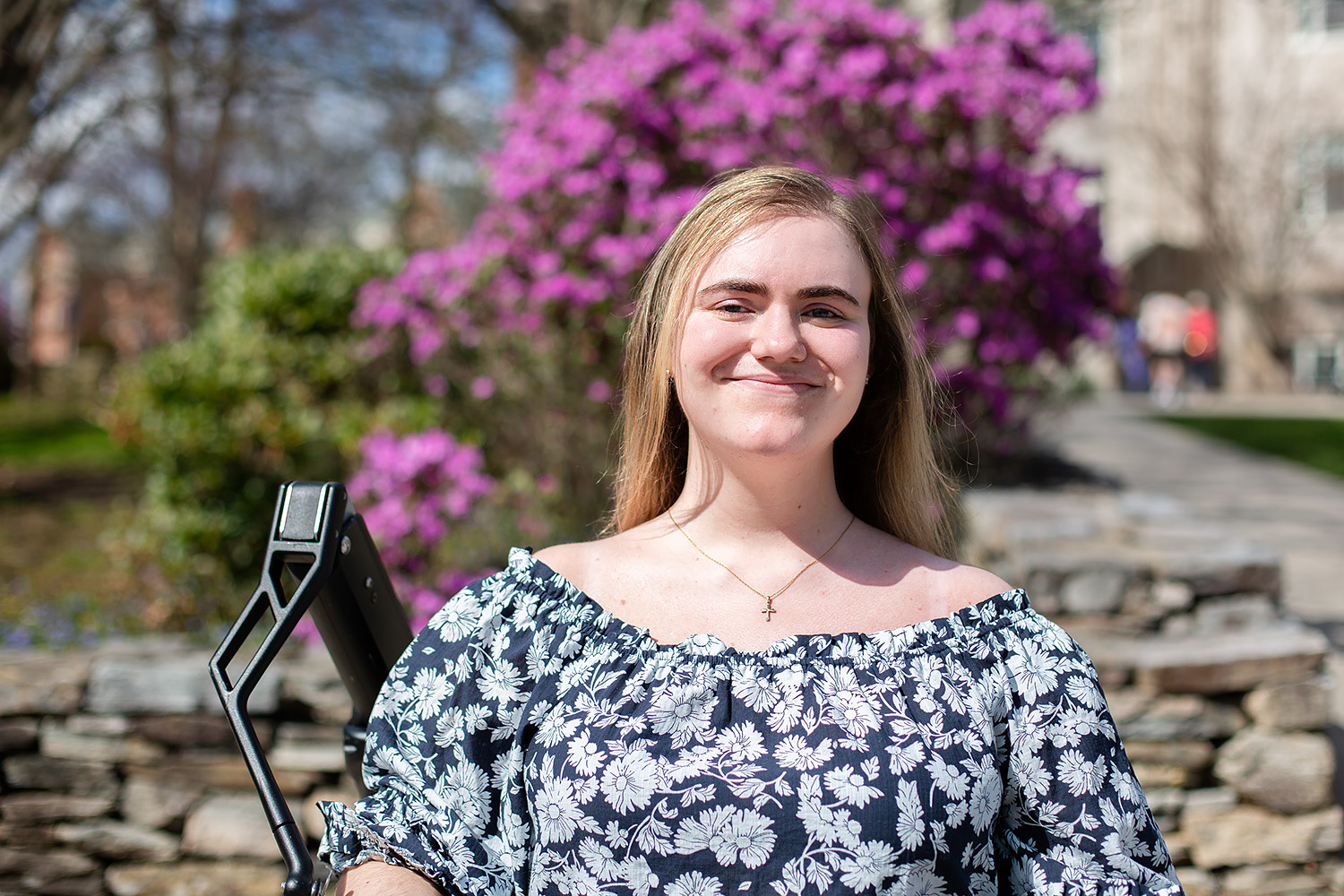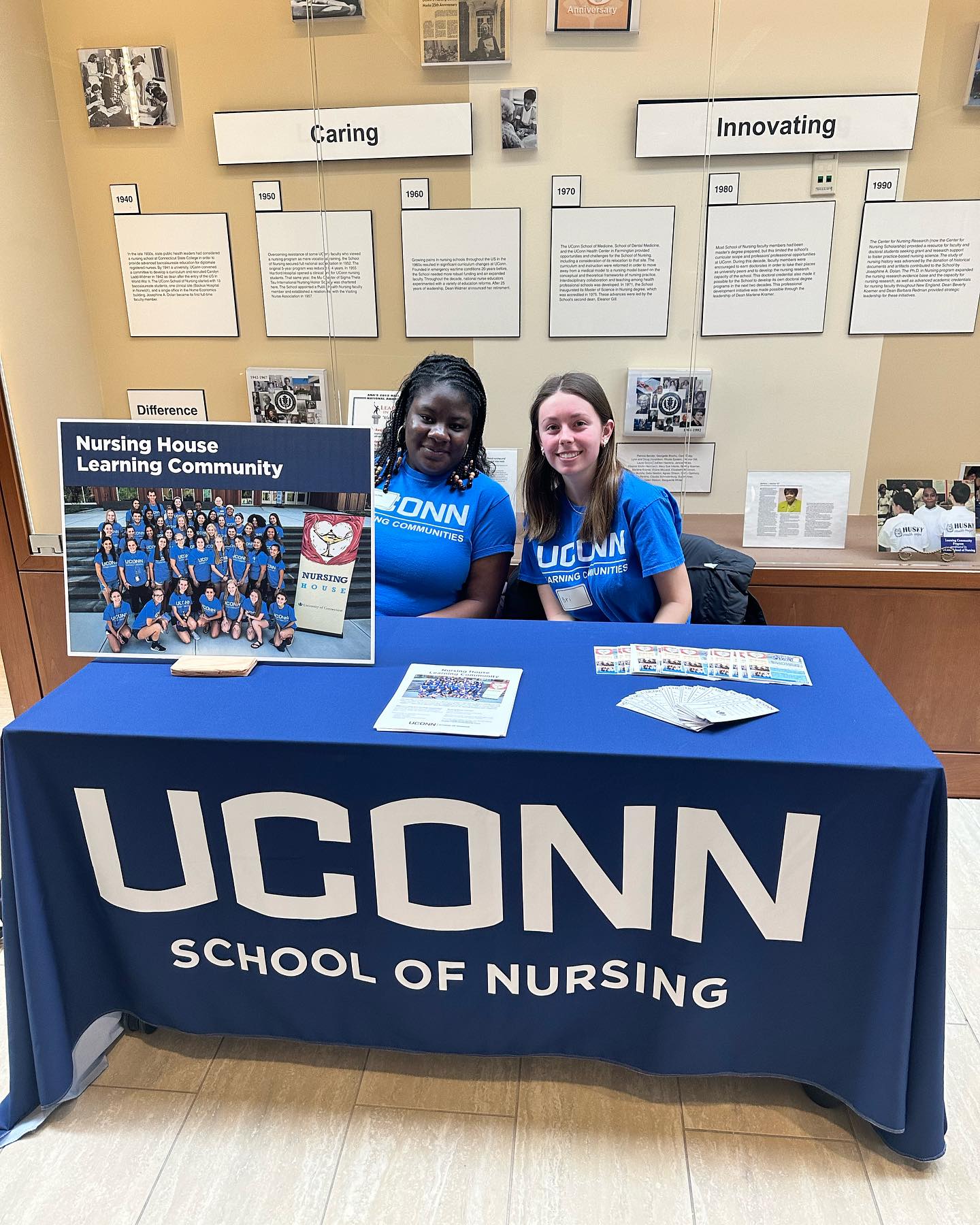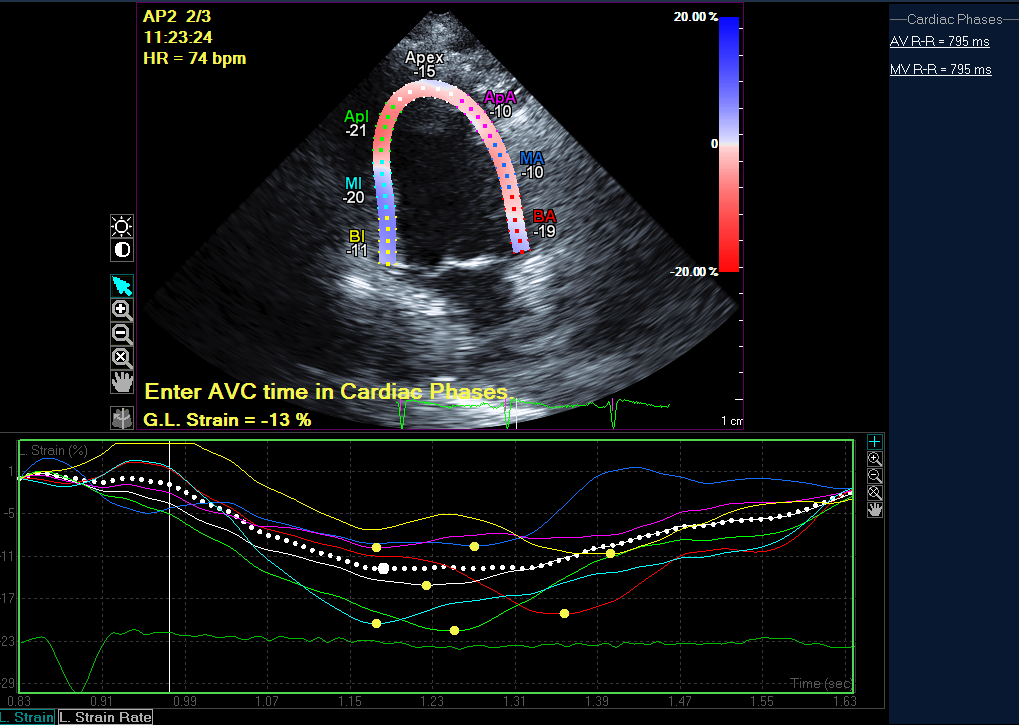
While Lynn Michaud, 57, of Bristol was undergoing breast cancer she had no idea that she should be concerned with her heart health too.
That is until her oncologist at the Carole and Ray Neag Comprehensive Cancer Center at UConn Health had her go for heart health surveillance with UConn Health’s Cardio-Oncology Program directed by Dr. Agnes Kim of the Pat and Jim Calhoun Cardiology Center.
“It turns out not only did I get stage III breast cancer but the chemo used to treat it attacked my heart,” says Michaud. “It was a very big surprise. I had no idea cancer care could do this to my heart.”
To cure her cancer Michaud had received 20 rounds of intravenous chemotherapy and 42 rounds of radiation therapy. To reveal any potential heart health impact from this cancer care, Kim used advanced strain imaging by echocardiography to uncover any potential early warning signs of heart damage.
Kim found that Michaud’s heart was indeed not beating strongly enough. This decline in heart function signaled a drop in her heart muscle’s pumping ability, which is a precursor to the development of heart failure.
The culprit, the chemotherapy medication doxorubicin (Adriamycin), commonly used as a lifesaving medication for breast cancer and other cancers.
“Certain cancer treatments can potentially cause unintended negative consequences on the cardiovascular system,” stresses Kim. “It is critical for cancer doctors to also keep their patient’s heart health in mind during and after cancer treatment.”
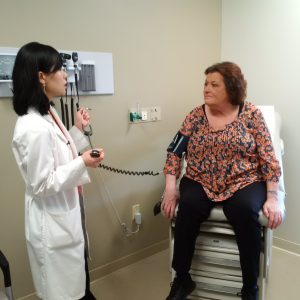
To help stop the heart damage progression and reverse it, Kim prescribes ACE inhibitor or angiotensin II receptor blocker (ARB) and beta blocker medications to improve heart function and to prevent heart failure, a weakened heart muscle condition that can be severely debilitating or fatal.
“I am very happy that Dr. Kim found the problem and helped fix it,” says Michaud. “Dr. Kim put me on the medication and my heart quickly showed signs of healing.”
UConn Health’s Cardio-Oncology Program’s goal is to allow cancer patients to successfully complete their lifesaving treatments while minimizing the possible side effects on the heart during and after treatment.
Also, Kim aims to detect any heart damage warning signs as early as possible by advanced echo techniques or circulating blood biomarkers before a patient even experiences the symptoms of shortness of breath, heart palpitations, decreased exercise tolerance, chest discomfort, and swelling.
“Thank God for the doctors finding out early about my heart damage,” stresses Michaud. “I love UConn. They saved my life. Now I am feeling very well!”
